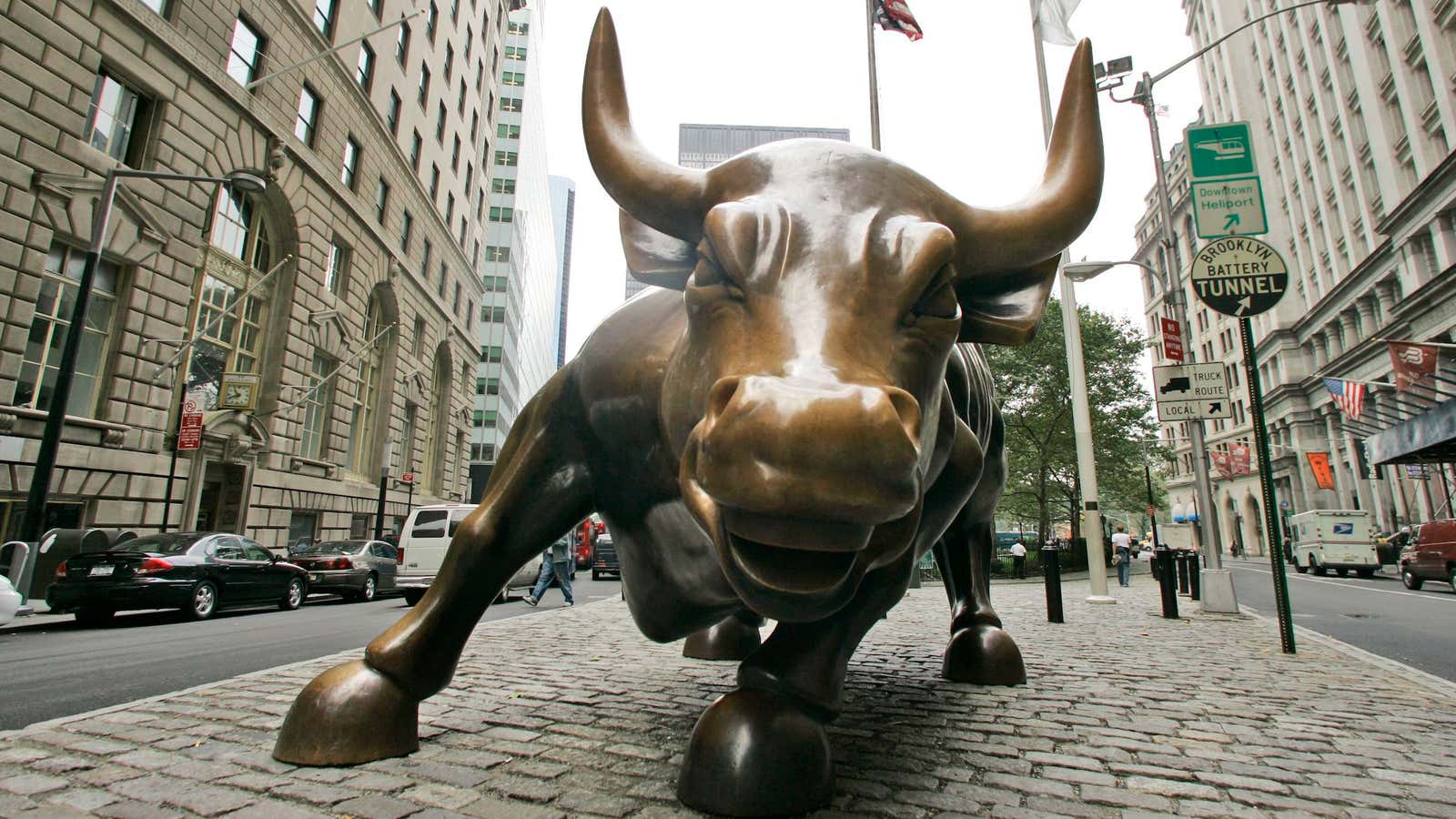It looks to be a pretty poor earning season for the biggest banks in the US. Some, such as JPMorgan Chase and Citigroup, already have signaled that key revenue units, such as fixed-income trading, endured an ugly first quarter.
Among the biggest banks in the US by deposits, JPMorgan Chase and Wells Fargo will kick off the pageant of first-quarter results on Friday. Next week, Citigroup reports on Monday, followed by Bank of America’s earnings on Wednesday. Two of the most prominent investment banks, Morgan Stanley and Goldman Sachs, will round out the pack, with their earnings both to be announced Thursday.
Here’s a quick overview of what the industry will be looking at as they take stock of the US banking system:
JPMorgan:
- Jamie Dimon’s sprawling institution is one of the firms that has publicly said it expected to see fixed-income trading revenues down by as much as 15%. The grim tone prompted leading banking analysts, including Jeff Harte of Sandler O’Neill, to lower earnings estimates for other major banks, as well as JPMorgan. Dimon likely will field questions about succession after a pair of top executives (Blythe Masters and Michael Cavanagh) exited the firm a few weeks ago.
Bank of America:
- BofA has more work to do to resolve some overhanging legal problems. Expectations are that BofA will try to continue to trim its legal liabilities, as JPMorgan did in 2013. Some of that work already has begun, with Bank of America announcing a $9.3-billion settlement with the Federal Housing Finance Agency, to settle claims that it sold faulty mortgage bonds to the giant housing finance companies Fannie Mae and Freddie Mac. BofA said the settlement translates to a 21-cent-per-share hit to its upcoming earnings. Additionally, a number of mortgage-related Department of Justice probes of BofA remain unresolved.
Wells Fargo:
- Wells Fargo continues to be one of the better performers in the banking sector. But the firm’s biggest driver of revenue is mortgage origination. And the mortgage market has slowed considerably as the Federal Reserve has announced that it is lightening up on its support for the bond market. (That drove interest and mortgage rates sharply higher last year.) That said, shareholders are still keen on the bank’s stock, which has been up 10% since the beginning of the year—the best performer among the big six banks so far.
Citigroup:
- Citigroup has a lot of explaining to do, as we’ve mentioned. A fraud scandal in Mexico and an apparently prickly relationship with regulators at the Federal Reserve is costing the bank credibility on the Street. Outspoken analyst Mike Mayo has voiced support for Citi’s current CEO, Michael Corbat, but has raised the possibility of the firm replacing its CFO, John Gerspach.
Morgan Stanley:
- Switching its focus away from trading and into wealth management is turning out to be a sharp move for Morgan Stanley’s CEO, James Gorman. The big question investors may have is the investment bank’s ability to increase its overall returns for shareholders. Gorman will need to show that the bank is making progress on boosting returns. Compared to its closest peers last quarter, it wasn’t up to par. For example, Goldman Sachs’ return on equity–a measure of bank performance and efficiency–was 12.7% in the fourth quarter, compared to only 6% for Morgan Stanley, after certain items are stripped out.
Goldman Sachs:
- Investors will be looking to see if Goldman has lost its bond-trading mojo. While bond-trading was once a big revenue-driver for the firm, it has becoming a smaller, weaker area for for the gold-plated investment banking franchise. Goldman recently reiterated its commitment to trading (specifically fixed-income trading) in a letter to shareholders. But the bank will have to show that its trading prowess remains intact.
